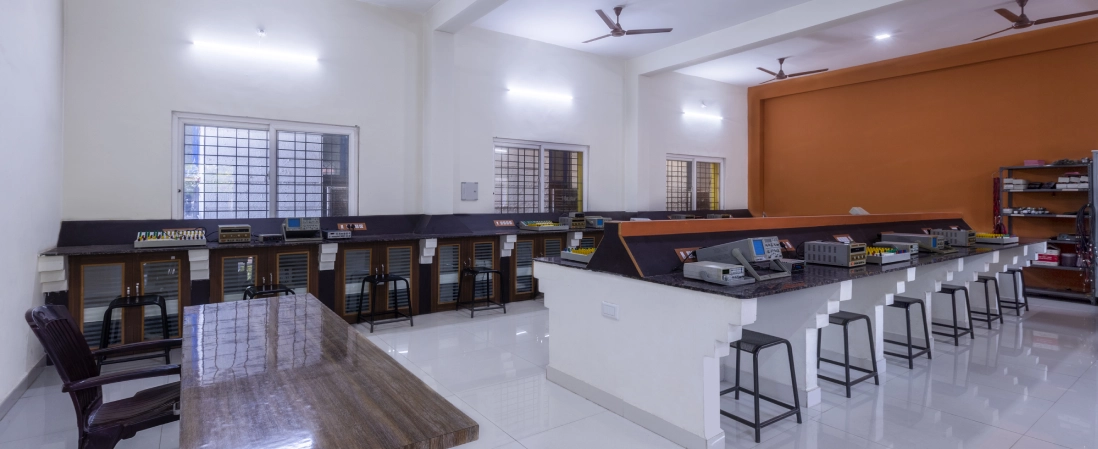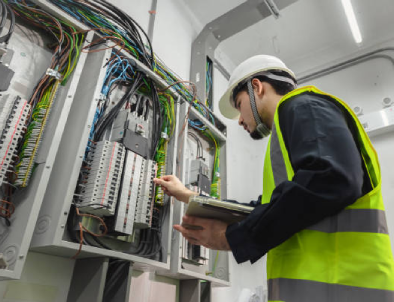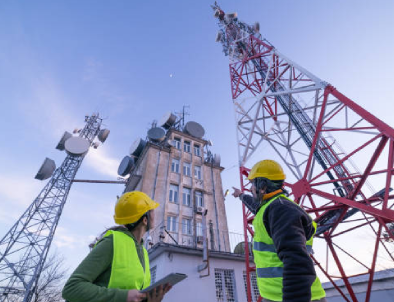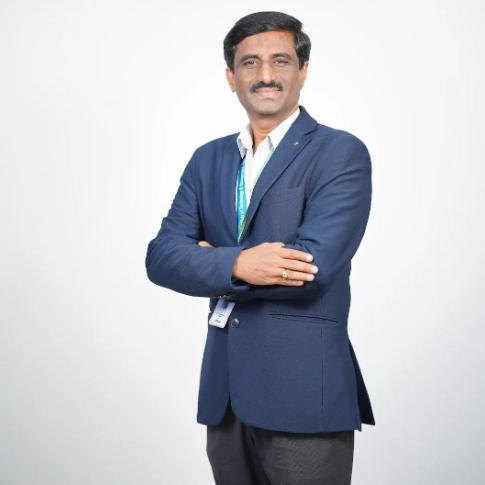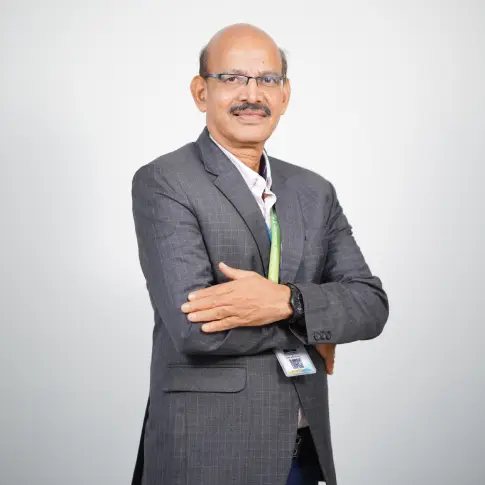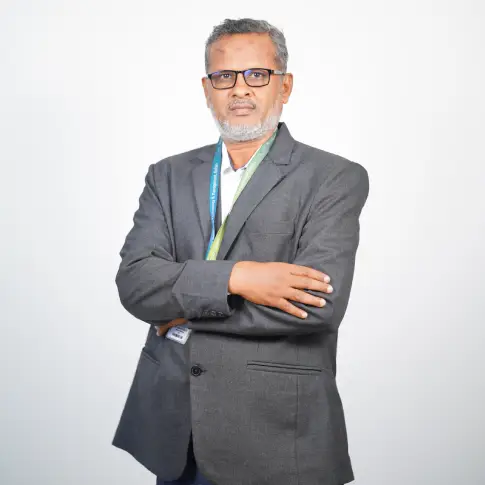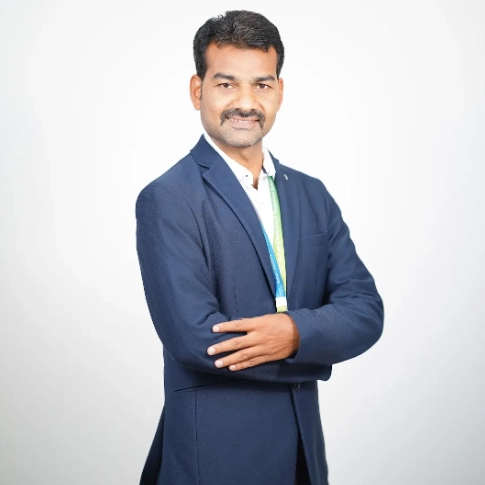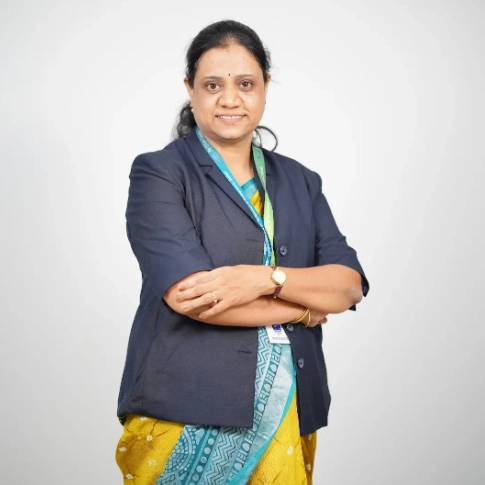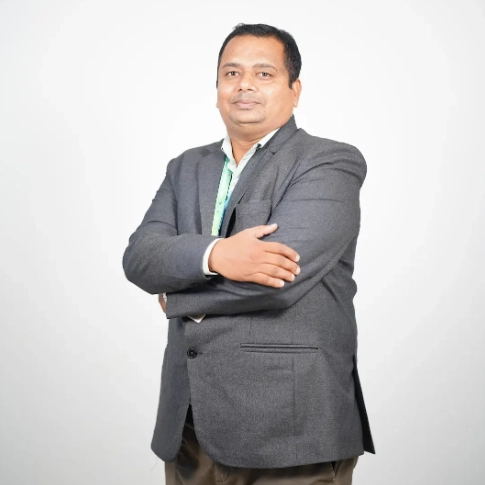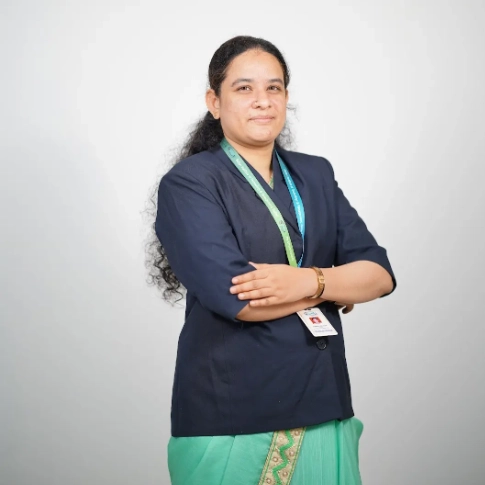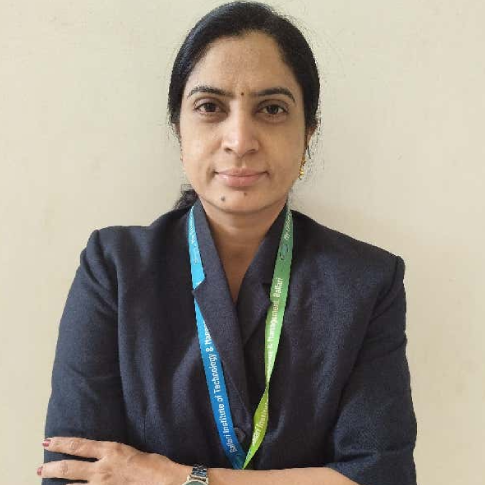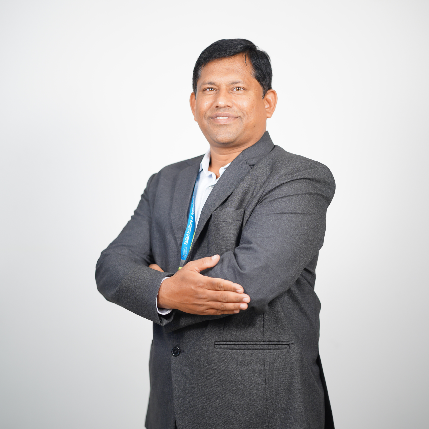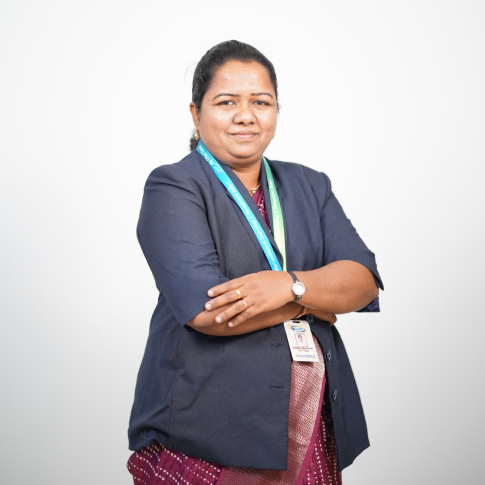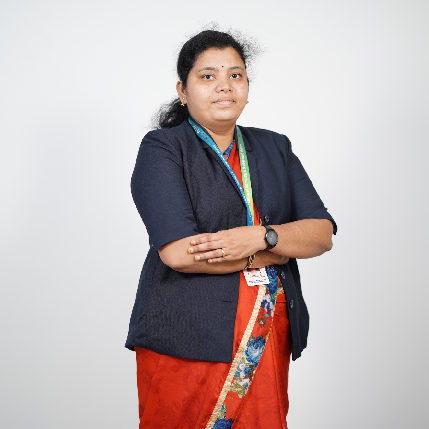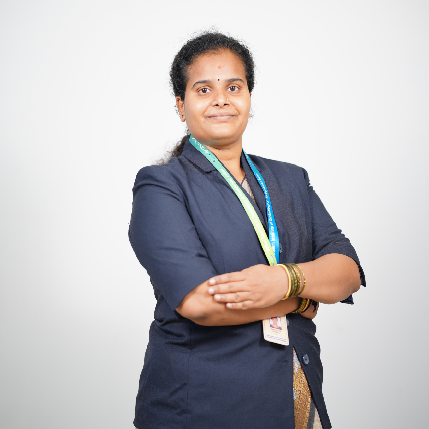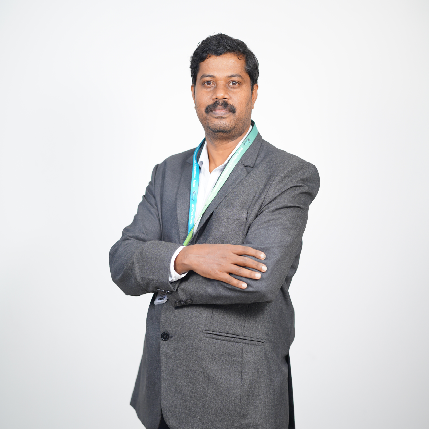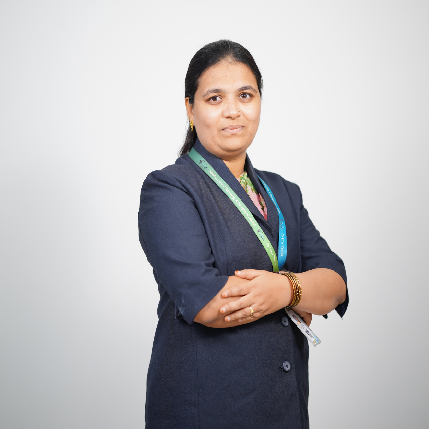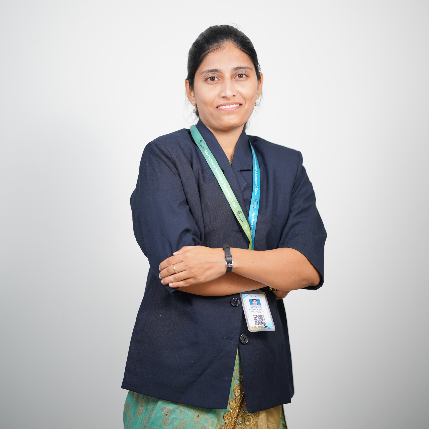Programme Level
Under Graduate
Duration
4 Years
About the Program
Program Overview
The Electrical and Electronics Engineering (EEE) program at Ballari Institute of Technology & Management (BITM) offers comprehensive education at both undergraduate (B.E.) and Ph.D. levels. The B.E. program, spanning four years, provides a strong foundation as per the industry requirements.
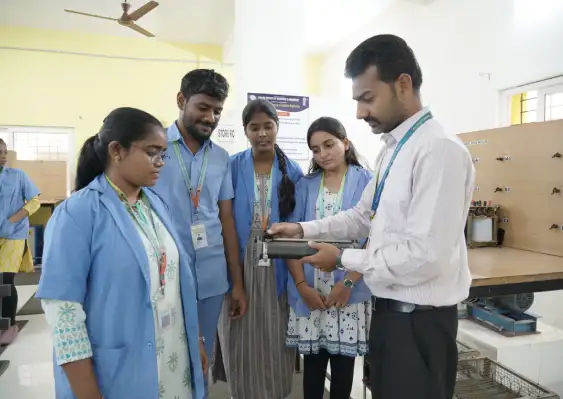
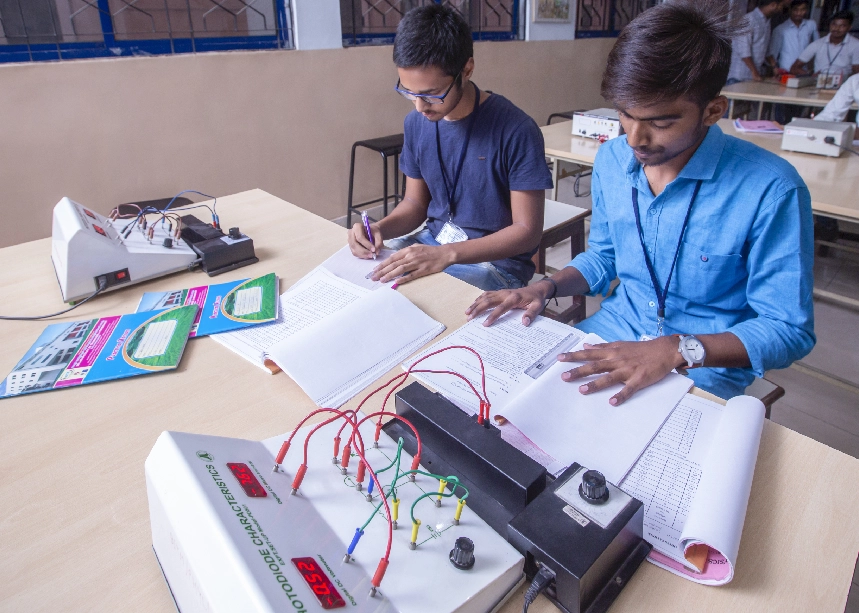
The curriculum emphasizes practical learning through labs, projects, and internships, preparing graduates for their careers. The department also has a VTU-recognized research center that offers research opportunities in areas such as Power Systems, Power Electronics and Drives, Electric Vehicle Technology, Renewable Energy Sources etc.
The department regularly conducts workshops for students and faculty, along with student development programs and faculty development programs. Students are encouraged and motivated to participate in conferences, workshops, training programs, and hackathons both within the institute and outside.
Eligibility Criteria
Students who have passed Karnataka 2nd PUC/ 12th Std, / 10+2 / Intermediate or equivalent exam with Physics & Mathematics along with Chemistry/ Computer Science / Biology and any other optional subject with English as one of the languages of study and should have obtained a minimum of 45% marks. For SC/ST & other backward classes of Karnataka students only, the minimum marks is 40% in aggregate in the optional subjects in the qualifying examination, irrespective of marks obtained in the Common Entrance Test / COMED-K/ AIEEE.(Eligibility as per the Govt. Norms from time to time.)
Career Options
A degree in Electrical and Electronics Engineering opens up a wide range of career opportunities across various Core and Software industries and in the Government Sectors
Program Fees
Duration
4 Years
Program
Electrical and Electronics Engineering
Type
- SNQ
- CET
- COMED-K
- MANAGEMENT
Amount
- Rs. 46,360/-
- Rs. 1,22,495/-
- Rs. 3,070,87/-
- Rs. 1,50,000/-
Admission Process
Students who have passed Karnataka 2nd PUC / 12th std / 10+2 / Intermediate or equivalent exam with Physics & Mathematics along with Chemistry / Computer Science / Biology and any other optional subject with English as one of the languages of study and should have obtained a minimum of 45% marks.
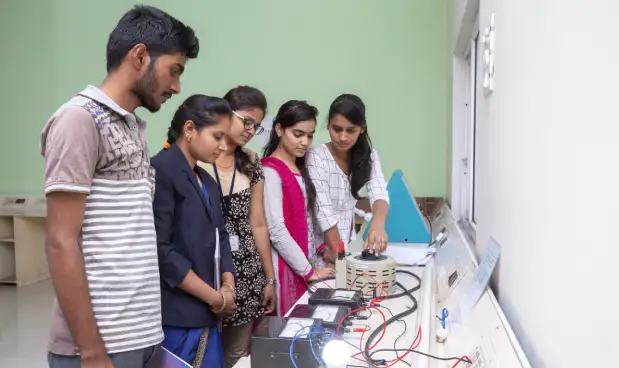
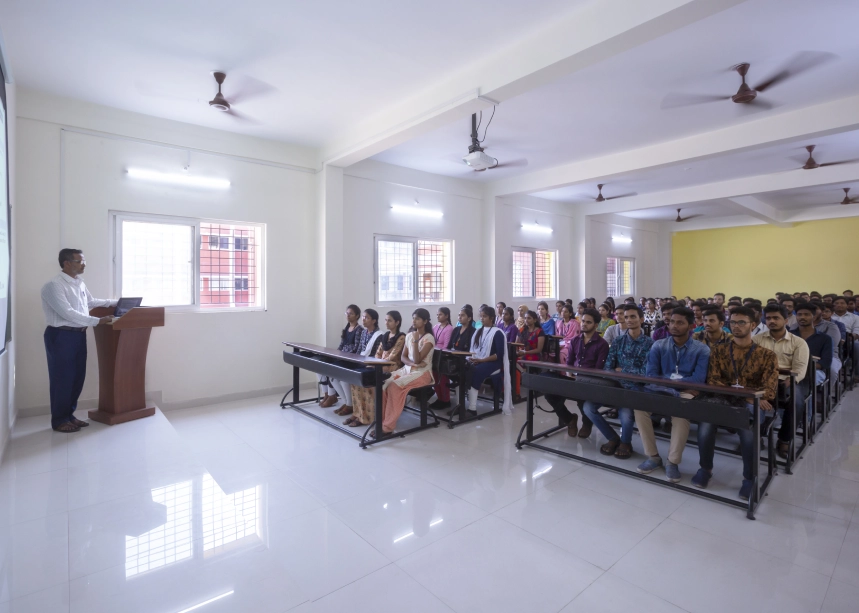
For SC/ST & Other backward classes of Karnataka students only, the minimum marks is 40% in aggregate in the optional subjects in the qualifying examination, irrespective of marks obtained in the Common Entrance Test / COMED-K / AIEEE / any other equivalent entrance examinations. (Eligibility as per the Govt. Norms from time to time).
Programme Educational Objectives (PEOs)
PEO-1
To excel in professional career by acquiring the broad knowledge of electrical engineering
PEO-2
To engage in lifelong learning, professional development and career enhancing activities
PEO-3
To demonstrate leadership qualities, ethics and skills necessary to be successful in their career
Program outcomes (POs)
PO 1
Engineering knowledge
Apply the knowledge of mathematics, science, engineering fundamentals, and an engineering specialization to the solution of complex engineering problems.
PO 2
Problem analysis
Identify, formulate, review research literature, and analyze complex engineering problems reaching substantiated conclusions using the first principles of mathematics, natural sciences, and engineering sciences.
PO 3
Design/development of solutions
Design solutions for complex engineering problems and design system components or processes that meet the specified needs with appropriate consideration for public health and safety, and cultural, societal, and environmental considerations.
PO 4
Conduct investigations of complex problems
Use research-based knowledge and research methods including design of experiments, analysis and interpretation of data, and synthesis of the information to provide valid conclusions.
PO 5
Modern tool usage
Create, select, and apply appropriate techniques, resources, and modern engineering and IT tools including prediction and modeling to complex engineering activities with an understanding of the limitations.
PO 6
The engineer and society
Apply reasoning informed by the contextual knowledge to assess societal, health, safety, legal & cultural issues and the consequent responsibilities relevant to the professional engineering practice.
PO 7
Environment and sustainability
Understand the impact of professional engineering solutions in societal and environmental contexts, and demonstrate the knowledge of, and need for sustainable development.
PO 8
Ethics
Apply ethical principles and commit to professional ethics & responsibilities and norms of the engineering practice.
PO 9
Individual and team work
Function effectively as an individual, and as a member or leader in diverse teams, and in multi-disciplinary settings.
PO 10
Communication
Communicate effectively on complex engineering activities with the engineering community and with society at large, such as being able to comprehend and write effective reports and design documentation, make effective presentations, and give and receive clear instructions.
PO 11
Project management and finance
Demonstrate knowledge and understanding of the engineering and management principles and apply these to one's work, as a member and leader in a team, to manage projects and in multidisciplinary environments.
PO 12
Life-long learning
Recognize the need for, and have the preparation and ability to engage in independent & life-long learning in the broadest context of technological change.
Programme Specific Outcomes
PSO 1
Analyze, design and solve problems in the field of electrical and electronics engineering by applying knowledge acquired from core subjects and other allied topics.
PSO 2
Develop products/ software using technological developments to cater the needs of society and industry.
Program Curriculum 2022 Scheme
| Sl No | Course code | Course Name |
|---|---|---|
| 1 | 22MATS11 | Mathematics for CSE Stream-I |
| 2 | 22PHYS12 | Physics for CSE stream |
| 3 | 22POP13 | Principles of Programming Using C |
| 4 | 22ESC14x | Engineering Science Course-I |
| 5 | 22ETC15x | Emerging Technology Course-I |
Or |
||
| 22PLC15x | Programming Languages Course-I | |
| 6 | 22ENG16 | Communicative English |
| 7 | 22KSK17 22KBK17 |
Samskrutika Kannada/Balake Kannada |
Or |
||
| 20ICO17 | Indian Constitution | |
| 8 | 22IDT18 | Innovation and Design Thinking |
Or |
||
| 22SFH18 | Scientific Foundations of Health | |
| Sl No | Course code | Course Name |
|---|---|---|
| 1 | 22MATS21 | Mathematics for CSE Stream-II |
| 2 | 22PHYS22 | Physics for CSE Stream |
| 3 | 22POP23 | Principles of Programming Using C |
| 4 | 22ESC24x | Engineering Science Course-II |
| 5 | 22ETC25x | Programming Language Course-II |
Or |
||
| 22PLC25x | Emerging Technology Course-II | |
| 6 | 22PWS26 | Professional Writing Skills in English |
| 7 | 22KSK2722KBK27 | Samskrutika Kannada/Balake Kannada |
Or |
||
| 20ICO27 | Indian Constitution | |
| 8 | 22IDT28 | Innovation and Design Thinking |
Or |
||
| 22SFH28 | Scientific Foundations of Health | |
| Sl No | Course code | Course Name | |
|---|---|---|---|
| 1 | 22XX31/ 22BB31 | Applied Mathematics for The Program / Biology for Engineers | |
| 2 | 22EE32 | Digital Electronics | |
| 3 | 22EE33 | Analog Electronic Circuits | |
| 4 | 22EE34 | Electrical Machines - I | |
| 5 | 22EEL35 | Electrical Machines Lab - I | |
| 6 | 22ESC361 | Electric Circuit Analysis | |
| 7 | 22SC37 | Social Connect and Responsibility | |
| 8 | 22AEE381 | Ability Enhancement Course Circuit Laboratory using Pspice |
|
| 9 | 22NS39 | National Service Scheme (NSS) | |
| 22PE39 | Physical Education(PE) (Sportsand Athletics) |
||
| 22YO39 | Yoga | ||
| 10 | 22MATDIP31 | Additional Mathematics - I | Mathematics |
| Engineering Science Course(ESC/ETC/PLC) | |||
| Electrical Circuit Analysis | |||
| Ability Enhancement Course–III | |||
| 1.Circuit Laboratory Using Pspice | |||
| 2.Electrial Machines-I using SCILAB | |||
| Sl No | Course code | Course Name | |
|---|---|---|---|
| 1 | 22XX41/ 22BB41 | Applied Mathematics for The Program / Biology for Engineers | |
| 2 | 22EE42 | Power Electronics | |
| 3 | 22EE43 | Electrical Machines - II | |
| 4 | 22EE44 | Micro controllers | |
| 5 | 22EEL45 | Electrical Machines Lab - II | |
| 6 | 22ESC461 | Electrical and Electronics Measurements | |
| 7 | 22ASS471 | Soft skills and Basic Aptitude | |
| 8 | 22UH48 | Universal human values course | |
| 9 | 22NS49 | National Service Scheme (NSS) | |
| 22PE49 | Physical Education(PE) (Sports and Athletics) | ||
| 22YO49 | Yoga | ||
| 10 | NCMC | 22MATDIP41 | Additional Mathematics - II |
| Sl No | Course code | Course Name |
|---|---|---|
| 01 | 22EE51 | Management, Entrepreneurship and Engineering Economics |
| 02 | 22EE52 | Generation Transmission & Distribution |
| 03 | 22EE53 | Control Systems |
| 04 | 22EEL54 | Control Systems Laboratory |
| 05 | 22EE55X | Professional Elective Course |
| 06 | 22EE56 | Mini Project |
| 08 | 22ES58 | Environmental Studies |
| 09 | 22NS59 | National Service Scheme(NSS) |
| 22PE59 | Physical Education(PE)(Sports and Athletics) | |
| 22YO59 | Yoga | |
Professional Elective Courses |
||
| 01 | 22EE551 | Operational Amplifiers and Linear IC’s |
| 02 | 22EE552 | Electro Magnetic Field Theory |
| 03 | 22EE553 | Electrical Machine Design |
| 04 | 22EE554 | Fundamentals of VLSI Design |
Ability Enhancement Course |
||
| 01 | 22EE571 | IOT Laboratory |
| 02 | 22EE572 | PCB Design Laboratory |
| Sl No | Course code | Course Name |
|---|---|---|
| 01 | 22EE61 | Power System Analysis-1 |
| 02 | 22EE62 | Signals & Digital Signal Processing |
| 03 | 22E63X | Professional Elective Course |
| 04 | 22EE64X | Open Elective Course |
| 05 | 22PEE65 | Project Phase -I |
| 06 | 22EEL66 | Signals and Digital Signal ProcessingLab |
| 07 | 22RM67 | Research Methodology and IPR |
| 08 | 22NS59 | National Service Scheme(NSS) |
| 22PE59 | Physical Education(PE)(Sports and Athletics) | |
| 22YO59 | Yoga | |
Professional Elective Courses |
||
| 01 | 22EE631 | Computer Aided Engineering Drawing |
| 02 | 22EE632 | Utilization of Electrical Power |
| 03 | 22EE633 | Electric Vehicle Technology |
| 04 | 22EE634 | Sensors and Transducers |
Open Elective Courses |
||
| 01 | 22EE641 | Fundamentals of Electric Vehicle Technology |
| 02 | 22EE642 | Utilization of Electrical Power |
| 03 | 22EE643 | Solar & Wind Energy |
| 04 | 22EE644 | Sensors and Transducers |
Faculty
Admission to Higher Semester:
- After the announcement of the reopening date of the college, the candidates have to register for the admission with an application enclosing all the photos copies of previous semesters marks card/s through their department HOD and they have to pay the applicable Tuition Fees / Registration Fees within a week of reopening the institute for class work.
- The students who fail to register within the first week of re-opening, the student will be charged a penalty
- The names of the students will be deleted, in case they fail to register as per the schedule
- Any financial matters are required to be referred to the principal only
- Once the student is admitted he/she will be under the guidance of the department and all the academic matters should be addressed through the Head of the department only.
- Students are expected to maintain discipline in the college campus & not to indulge in “Ragging Activities”.
FAQs
Electrical engineering encompasses many specializations focused on various aspects of power systems, electronics, and emerging technologies. Here are the primary specializations within electrical engineering:
Power Engineering
- Focuses on generating, transmitting and distributing electrical power as well as energy management and renewable energy.
- Power engineers work on the design of power plants, electrical grids and the integration of renewable energy sources like solar and wind.
Control Systems Engineering
- Involves designing systems that regulate the behaviour of other systems, often using automation.
- Control engineers work on applications like industrial automation, robotics, automotive control systems, and flight control for aircraft.
Electronics Engineering
- Deals with the design and development of electronic circuits and devices, such as semiconductors, transistors, and microprocessors.
- Electronics engineers work on consumer electronics, computing hardware, and specialized circuits for various industries.
Signal Processing
- Specializes in analyzing, modifying, and synthesizing signals, such as audio, video, and sensor data.
- Signal processing engineers work on applications like image processing, audio enhancement, and biomedical signal analysis.
Instrumentation and Measurement
- Focuses on designing devices that measure physical quantities (temperature, pressure, etc.) and monitor system performance.
- Engineers in this field work in areas like environmental monitoring, medical devices, and precision instruments for scientific research.
Renewable and Sustainable Energy Systems
- Focuses on designing electrical systems that utilize renewable energy sources and promote energy efficiency.
- Engineers in this area work on solar, wind, and battery storage systems, as well as sustainable power management.
An Electrical and Electronics Engineering (EEE) degree opens up a wide range of career opportunities across various industries due to the versatility of skills it imparts in areas like electrical systems, electronics, software, telecommunications, and power generation
Key skills include strong math and physics knowledge, problem-solving, analytical skills, teamwork, communication, project management, and familiarity with software like MATLAB, MiPower, etc.
Generally, a bachelor’s degree in Electrical and Electronics Engineering takes 4 years to complete, including main course subjects, labs, and often a main project and internship for practical experience.
Electrical and Electronics Engineering is now involving a significant amount of technology including simulation software, Modelling. Programs with strong tech integration provide skills that are valuable in modern electrical engineering careers.
Electrical and Electronics Engineering (EEE) has strong industry demand due to the critical role of technology, energy and automation across sectors. Key areas driving demand include:
Renewable Energy and Power Systems: EEE professionals are needed for designing, implementing, and managing renewable energy sources, smart grids, and efficient power distribution.
Overall, EEE remains a field with promising career prospects due to continuous technological advancement, global electrification, and the need for sustainable solutions across industries.
